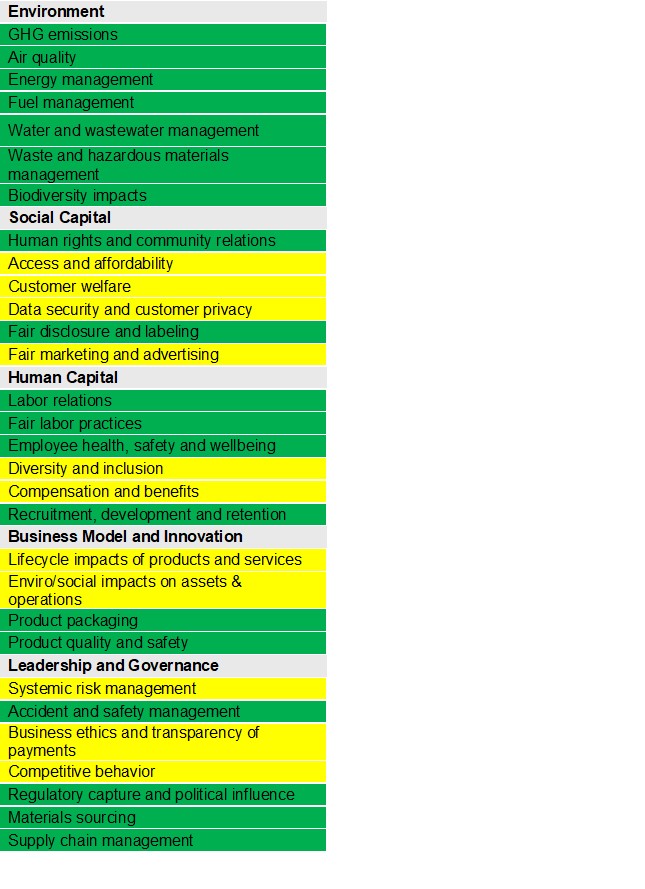Philanthropy
GUEST ARTICLE: Building Bridges In Thinking About Impact Investing - Part 3

In a series of articles, a prominent US figure in the impact investing space explores how to pull together disparate ways of thinking about the world to show how this model of managing money should be addressed. Here is the third essay.
This is the third instalment from author, Benjamin Bingham, CFP, founder and CEO, 3Sisters Sustainable Management. He is the author of Making Money Matter/Impact Investing to Change the World (www.makingmoneymatterbook.com). (See the previous article here.) An article introducing Ben can be found here.
This series is an attempt to build a bridge between a left brain, analytical approach to measuring sustainability and the more intuitive, right brain, or aspirational approach of the 17 UN Sustainable
Development Goals or SDG’s. A broader approach is especially applicable to the financial sector since it invests in and supports every other sector! As an impact investor in the financial industry, your financial returns and impact results will both be materially affected by the quality of all investment targets downstream.
When I was asked to be the first outsider to try out the B-Corp
rating system many years ago, before they launched, I wondered
why there was so little emphasis on our actual investments as a
financial firm.
What we invested in, it seemed to me, was far more important than
whether we recycled paper or walked to work. Over the years, the
weighting of actual investments was added and emphasized more,
but in general, across industries, no matter what rating agency,
ratings seem to hang much more on process than on product or
service; much more on how a business is conducted than what the
business does and its inherent impact on life. As we dig deeper
into each investment area it becomes apparent that everything
matters, everything can materially contribute or detract. Nothing
is without impact.
The 17 UN SDG’s help investors think clearly about measuring what matters, whether it is the How: the processes, or the What: the products and services. Every corporate practice, and community relationship, the sourcing of materials and the post-consumer waste stream are all as material as the actual impact of the product or service on every individual purchaser. Turned around, the impact of an upbeat, harmonious culture, or an exploitive corporate culture on individual employees can impact investors, for example in the recent fall of CEO’s at American Apparel, Uber and Metro Goldwyn Mayer.
Looking at financial institutions themselves, “too big to fail” banks are among the biggest leeches of local capital, removing it from local circulation to fatten the wallets of corporate managers somewhere else.
The “move your money” movement awakened consciousness to this fact, leading billions back to local community banks and credit unions. Attempts at local currency creation have been modestly successful one town at a time, whereas Switzerland has used a local currency successfully in business-to-business exchanges for almost a century, stabilizing the country even in times of global economic turmoil.
A burgeoning “local first” movement, has seen a great deal of traction in the financing of local commerce, and it all began with agriculture. Having been on the steering committee of one of the first two US Community Supported Agriculture (CSA) initiatives in the mid 1980’s, it has been extraordinary to watch such a local movement explode across the country. A variety of financial models have evolved, all designed to support the farmer’s budget, sometimes without a direct relationship to the commodities produced. “Slow Money” proponents are developing ways to finance local food systems beyond the one-farm-at-a-time CSA model. Nature-based businesses, like those supported by Accelerating Appalachia in Asheville, North Carolina, are the beneficiaries of “patient capital” that is responsible for the recent growth of artisan cheeses, beers, and breads.
Contrasting with this is the speculative high-speed world of crypto-currencies Based on the positive hope that blockchain technologies will end the possibility of financial manipulation and provide bankability to the unbanked, it is ironic that the underlying “mining” of crypto coins is eating up energy at an extraordinary pace and seems to be environmentally unsustainable beyond the risks of competitive speculation, even as the price of bitcoin soars. If bitcoin miners were a country they’d rank 61st in the world in terms of electricity consumption https://powercompare.co.uk/bitcoin/ . One exception in this space so far is Solarcoin (https://solarcoin.org/en/node/6) which is designed to incentivize the production of solar energy, so it offers both social and environmental benefits. Another coin with an environmental edge is incentivizing the reduction of plastic waste: RecycletoCoin (https://www.bcdc.online/recycletocoin).
Another way to invest in community building for those who like to think globally and act locally in remote geographies, there are thousands of microfinance institutions that, if managed well could provide meaningful impact for short term capital. A ladder of short-term notes that come due at regular intervals, for example: MicroVest Short Duration Fund, can provide useful liquidity to investors while providing loan capital to financial institutions in the majority world. Microvest is in some 40 countries that have been vetted for financial stability and, more importantly, for the local institution’s deep knowledge of and trust from local entrepreneurs. Other such creative platforms should be developed to increase the circulation of money for the common good both locally and globally.
Altogether, a healthy focus for the financial industry is to maximize local capital resources in order to consciously create a better world. This can be done through investing in creative innovation, lending for infrastructure, and monetary systems that facilitate access to capital for all. These are the keys for a healthy global community and for healthy local communities globally.


